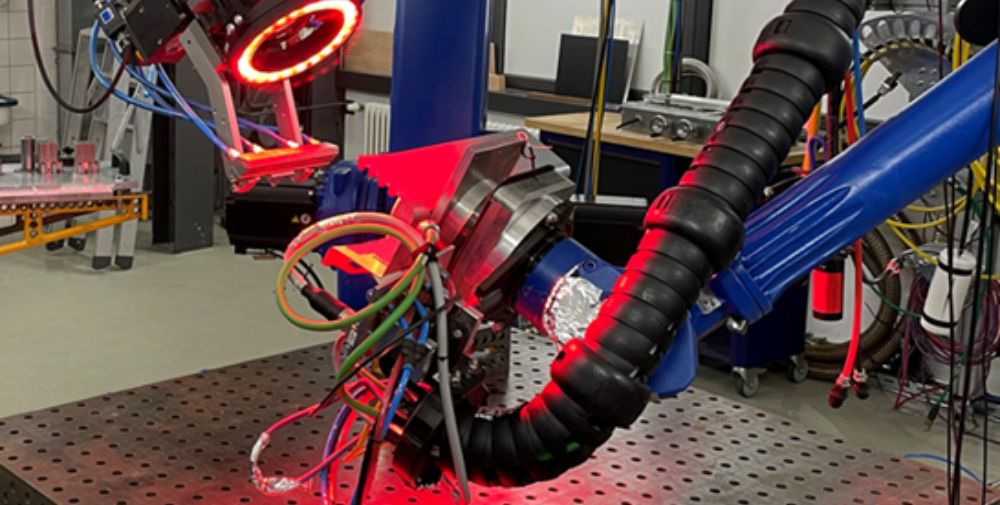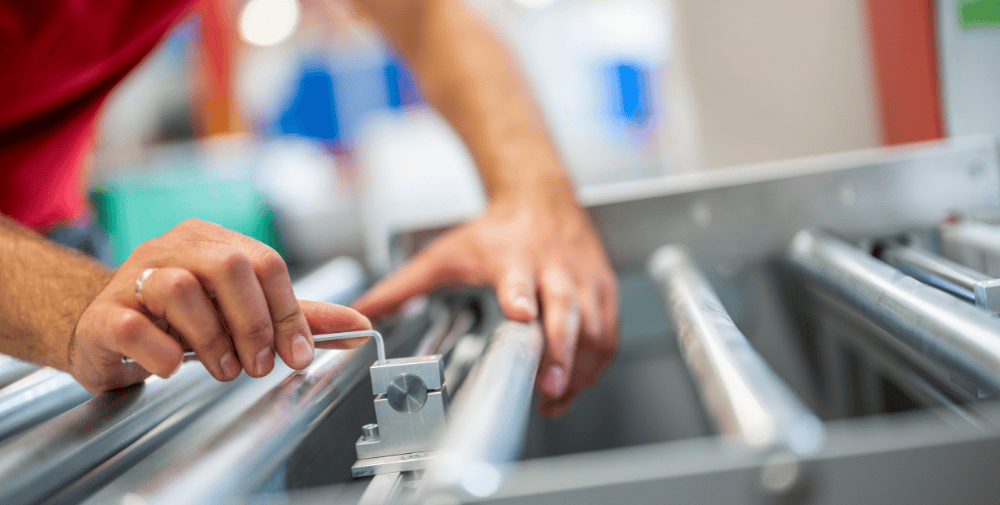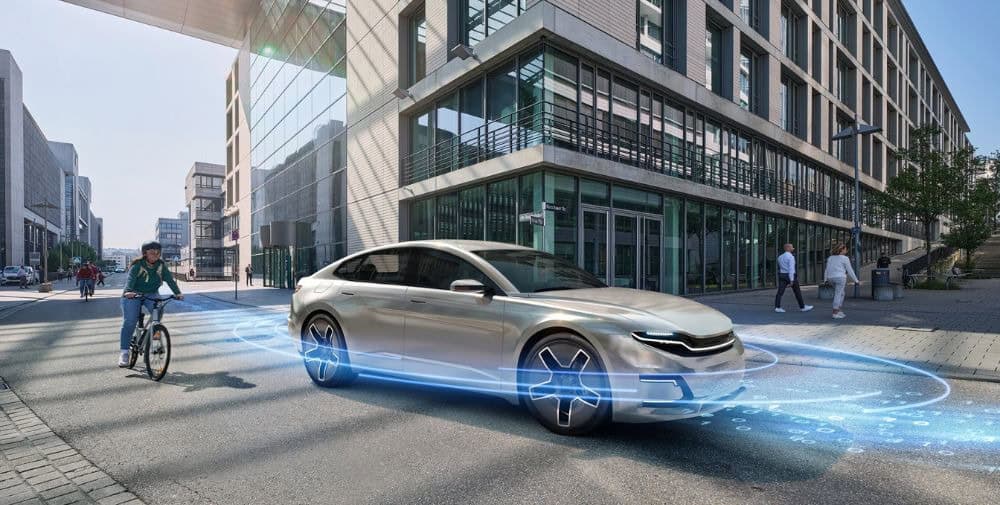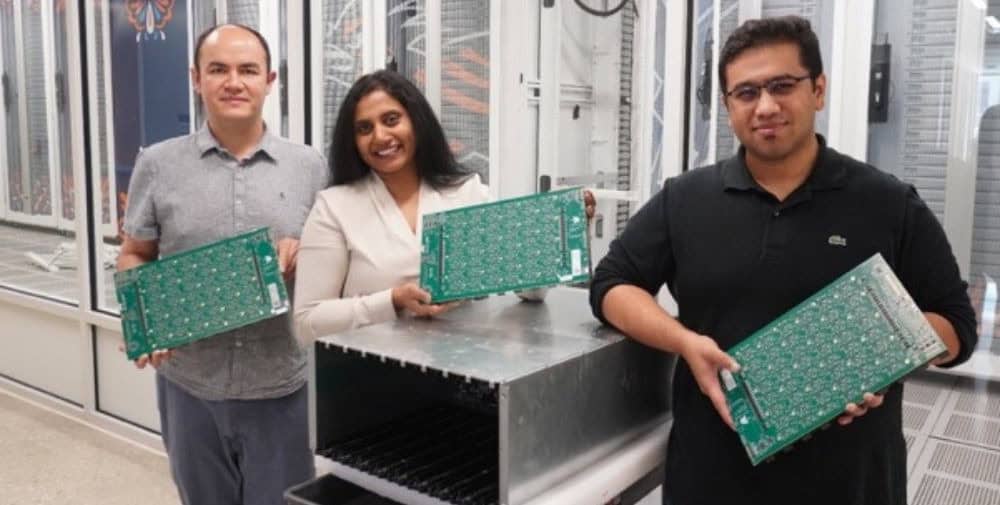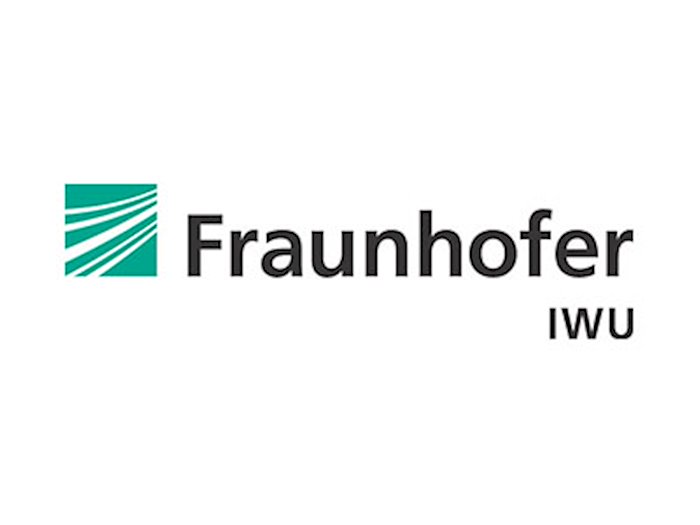
For many years now, robots have been performing tasks that require a high level of repeat accuracy. They are also the first choice for monotonous or ergonomically unfavorable tasks. But (re)forming a sheet metal part for vehicles or aircraft, placing a laser weld seam in components of solar thermal modules where deviations of more than 50 micrometres (0.05 millimetres) would be unacceptable or grinding a surface with complex geometries? Many users hardly ever think of robots for such tasks, as their trajectories usually have too high deviations for this. On the other hand, the purchase or operation of rolling machines and industrial machining centers is usually only worthwhile for the production of large quantities or if high prices can be achieved for the product. A promising alternative and solution to this dilemma is to “teach” robots precise movements using their specific tools. The researchers at the Fraunhofer IWU have now built up a great deal of methodological knowledge in order to open up many new fields of application for robotics. This application-ready knowledge is now bundled in the new application center for path-guided robot processing and is available to interested manufacturing companies. Customer-specific further developments are possible at any time.
Grinding to perfection thanks to a special compensation unit
When new forming tools (press tools) are incorporated, this usually means that an experienced toolmaker grinds and trims the tools until the required dimensional accuracy of the component is achieved. Robots allow the machining of free-form surfaces and can now relieve some of this time-consuming and laborious work, thus saving time and costs. Thanks to a compensation unit developed at the Fraunhofer IWU, the contact pressure and material removal during grinding remain constant and the inaccuracy of the robot path is compensated for.
Robot-based roll forming: Flexible forming in several steps with just a few tools
In robot-based roll forming, a highly flexible technology for roll forming, a robot guides a pair of rollers in several passes alternately in both directions (reversing) and with gradually increasing infeed along the workpiece until, for example, a flange is brought into the desired shape. Any geometric deviations can be detected optically or via the reaction forces in the robot after each path movement. After a corresponding analysis of the measurement data, any deviation can be corrected (compensated) during the next forming path movement. The technological springback of the material can be corrected by overbending in the opposite direction. It is also important to take a holistic view of the process, including the flexible clamping of the component to be formed. Process-accompanying data acquisition and AI-supported evaluation of the data make it possible to respond directly to fluctuating material properties (strength, springback behavior) and to compensate for geometric deviations in advance. At the same time, quality control and documentation become an integral part of the production process.
High-precision and highly flexible laser scanner welding with two cooperating robots
Robot systems are often unsuitable for high-precision laser beam welding due to their significantly lower accuracy. However, this inaccuracy can be compensated for with seam tracking systems for laser beam scanner optics. If the laser beam tool is guided by a robot and the workpiece to be welded by a second robot, complex 3D geometries can be welded. The challenge is to coordinate twelve robot axes and two scanner axes in such a way that the resulting laser beam movement on the welding path is constant and highly accurate.
December 5, 2023: Opening event at the Fraunhofer IWU Chemnitz
The new application center for path-guided robot processing will be presented to experts for the first time on December 5. The event is aimed at interested manufacturers and users and participation is free of charge. Further information and registration: here (https://www.iwu.fraunhofer.de/de/veranstaltungen-und-messen/tagungen-und-workshops/eroeffnung-des-applikationszentrums-bahngefuehrte-roboterbearbeitung.html)
Contact
Dr. Jan Berthold
Fraunhofer Institute for Machine Tools and Forming Technology IWU
Reichenhainer Str. 88
09126 Chemnitz
Phone +49 371 5397-1539
Fax +49 371 5397-61539
– – – – –
Further links
👉 www.iwu.fraunhofer.de
Photo: Fraunhofer IWU
